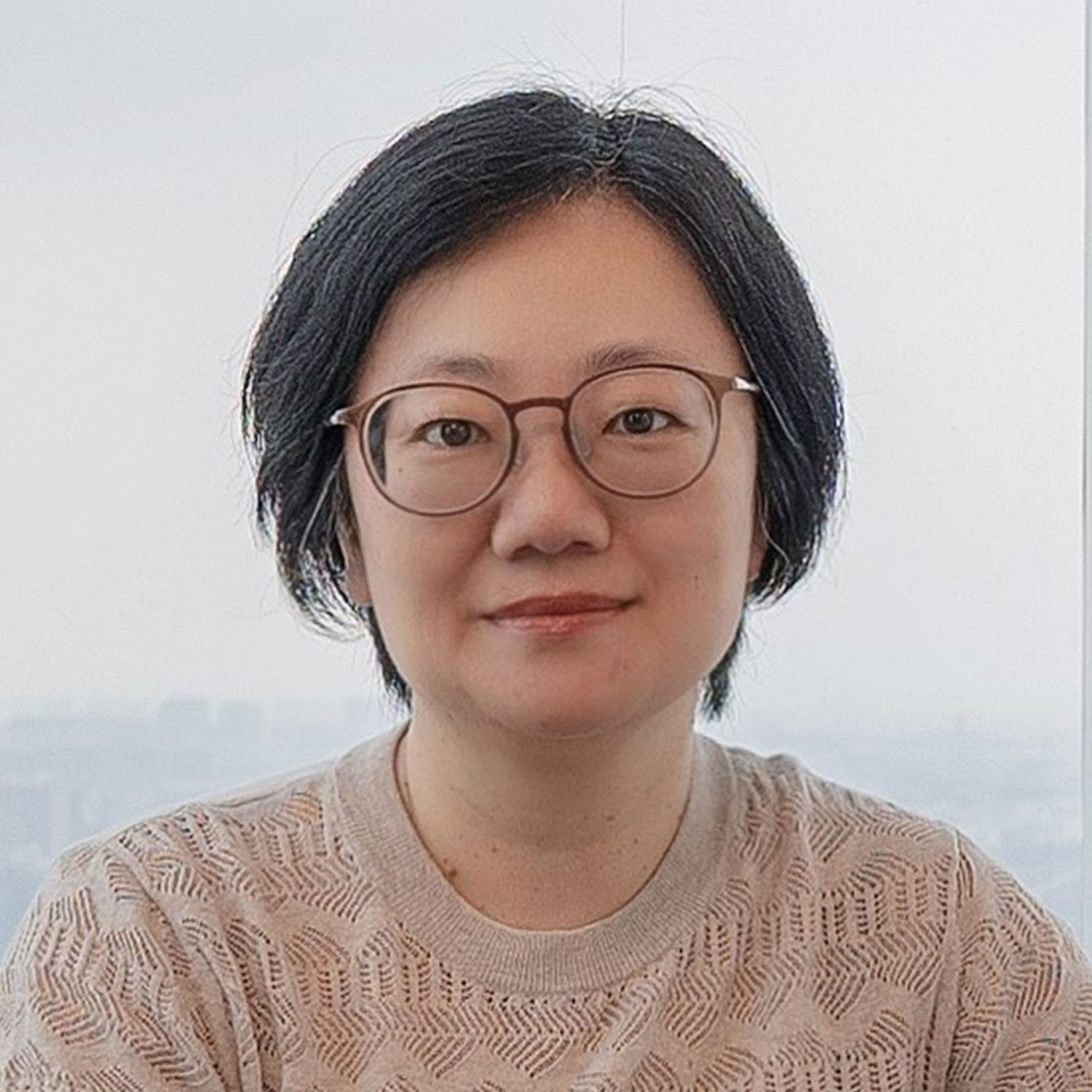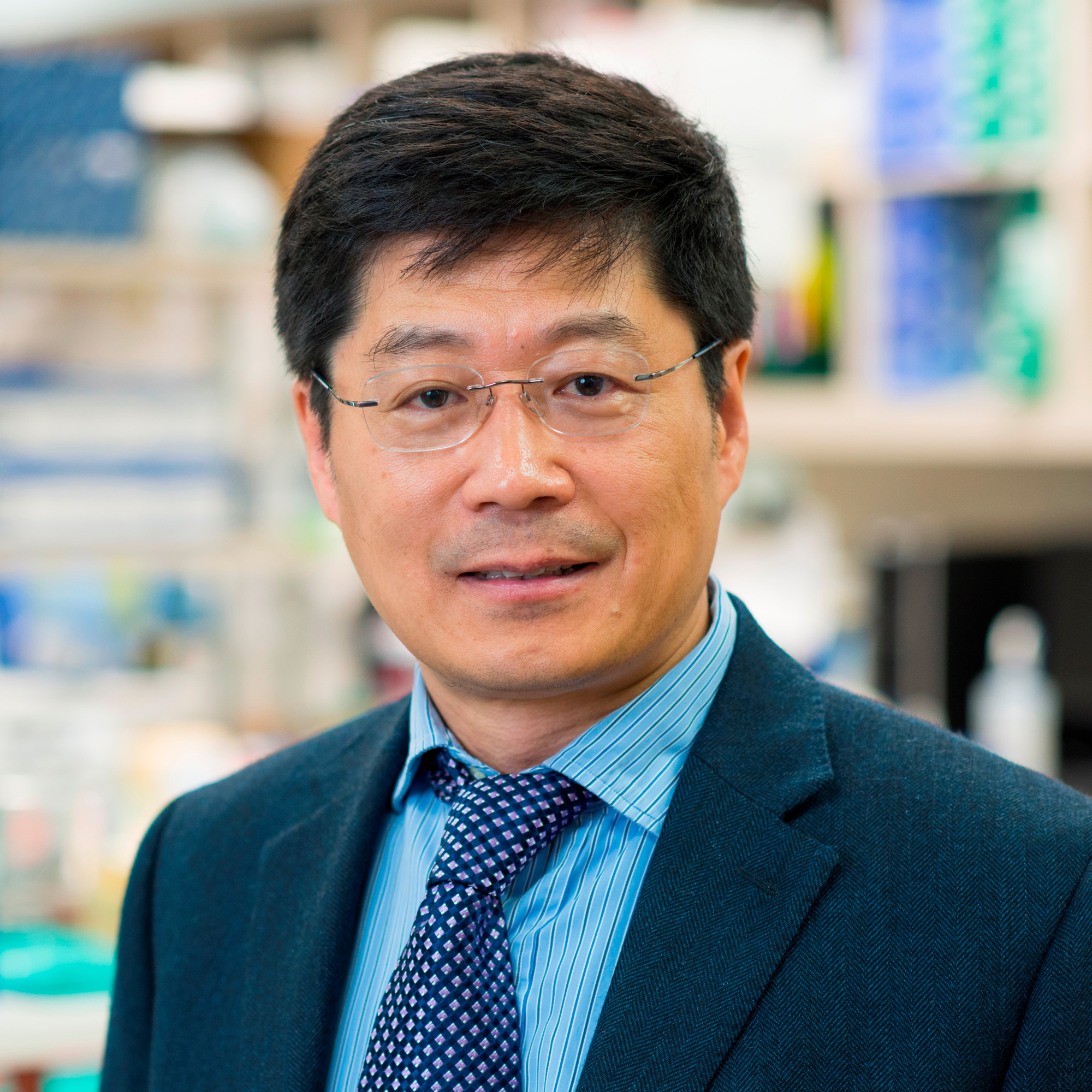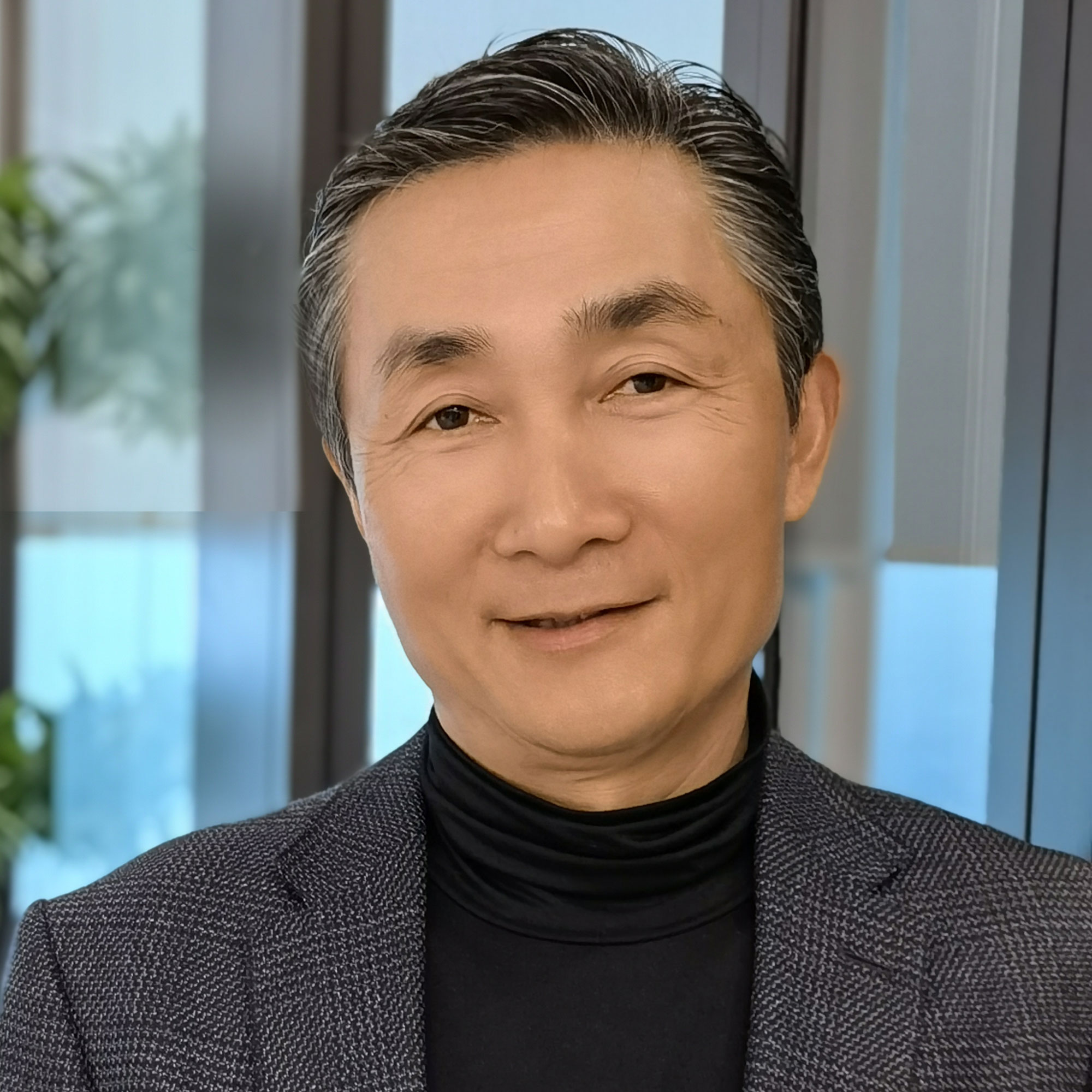Leucine-rich repeat kinase 2(LRRK2) is a multifunctional protein with GTPase & kinase activities. LRRK2 gene mutations are associated with increased activities of LRRK2 protein, conferring elevated risk for Parkinson’s disease (PD). SNP614 is a chemically modified antisense oligonucleotide (ASO) efficiently downregulates LRRK2 mRNA thereby lowering its levels and activities linked to PD development and progression. ASO treatment enables a disease-modifying therapy and is superior to current standard of care (SoC) symptomatic approaches.
Cytoplasmic TDP-43 (transactive response DNA binding protein of 43 kDa) forms toxic aggregates featuring C-terminal phosphorylation and correlating with neurodegeneration. Reduction of extracellular TDP-43 protects neurons from TDP-43 induced pathology and death. SNP210 is a human autoantibody isolated from patient with high affinity of disease-variant of TDP-43. Targeted disease indications include amyotrophic lateral sclerosis (ALS) and certain forms of frontotemporal dementia (FTD).
Alpha-synuclein is a major component of Lewy bodies, a pathological hallmark of synucleinopathathies, including Parkinson’s disease (PD), dementia with Lewy bodies (DLB), and multiple system atrophy (MSA). SNP201 is a high affinity alpha-synuclein antibody, binding preferentially to aggregated forms of alpha-synuclein known to be pathogenic. Superior binding affinity and epitope recognition enable a favorable target engagement to achieve better clinical efficacy.
Lipoprotein-Associated Phospholipase A2 (Lp-PLA2) is an enzyme that hydrolyzes oxidized phospholipids typically on low-density lipoprotein (LDL) to yield lysophosphatidylcholine (lysoPC), a potent proinflammatory factor in both CNS and periphery. LysoPC induces vascular inflammation, which leads to damages in blood vessels in the brain including blood-brain barrier (BBB). SNP318 is a CNS-penetrant inhibitor of Lp-PLA2 with the potential to repair BBB, thereby restoring vascular health and improving cognition in dementias such as Alzheimer’s disease (AD).
Progranulin (PGRN) is a secreted glycoprotein growth factor encoded by the GRN gene that plays a critical role in regulating lysosomal function, neuronal health and survival, and inflammation. Loss-of-function mutations in GRN cause frontotemporal dementia (GRN-FTD) and are associated with Alzheimer’s disease (AD). Extracellular PGRN levels are regulated by its cell surface receptor, Sortilin 1 (SORT1), through the endocytic degradation pathway. SNP203 is a best-in-class anti-SORT1 antibody that restores extracellular PGRN levels by blocking the PGRN-SORT1 interaction and reducing PGRN endocytic clearance and thus increasing extra-cellular PGRN levels. Compared to competitor molecules, SNP203 demonstrates superior potency, improved pharmacokinetics (PK), lower dosing requirements, and a more patient-friendly delivery method.

Lisa brings nearly 20 years of clinical development experience and a deep understanding of the healthcare environment. Prior to joining SciNeuro, she built an extensive knowledge base and experience set in cross-functional teams spanning trial design, regulatory strategy, clinical operations and efficacy and safety assessment in multiple therapeutic areas at BMS, GSK and Ferring Pharmaceuticals. Lisa is a physician by training, having earned an MD and PhD at Fudan University in Shanghai, and received postdoctoral research training in Yale University School of Medicine.

Paul brings over 15 years of business development leadership and transactional experience within the biotech industry and multinational corporations (MNCs). His expertise spans both the buy and sell sides, covering multiple therapeutic areas. He served in senior business development roles at Adaptimmune Therapeutics, Inovio Pharmaceuticals and Nimbus Therapeutics, where he successfully led and closed multiple major and strategic clinical and preclinical stage asset and platform technology transactions. Additionally, he held the position of Senior Director, Worldwide Business Development at GlaxoSmithKline. Paul is a scientist by background earning a BSc, then PhD in Pharmaceutical Sciences from the Universities of Bath and Nottingham, respectively. He also holds an MBA from Lehigh University, Bethlehem, PA.

Paul brings over 15 years of business development leadership and transactional experience within the biotech industry and multinational corporations (MNCs). His expertise spans both the buy and sell sides, covering multiple therapeutic areas. He served in senior business development roles at Adaptimmune Therapeutics, Inovio Pharmaceuticals and Nimbus Therapeutics, where he successfully led and closed multiple major and strategic clinical and preclinical stage asset and platform technology transactions. Additionally, he held the position of Senior Director, Worldwide Business Development at GlaxoSmithKline. Paul is a scientist by background earning a BSc, then PhD in Pharmaceutical Sciences from the Universities of Bath and Nottingham, respectively. He also holds an MBA from Lehigh University, Bethlehem, PA.
* interim

Sam is a board-certified neurologist with over 20 years of experience in neurology, focusing on neurodegenerative diseases and aging-related disorders. He has extensive experience in clinical development, ranging from translational to late-stage, with several successful IND submissions. He is also well-versed in medical affairs, regulatory strategy, safety and pharmacovigilance, patient advocacy, data-management, and biostatistics. Sam has previously served as Chief Medical Officer for several biotech and pharmaceutical companies, holding senior leadership positions in clinical development, medical affairs, regulatory affairs, and market access strategy at H. Lundbeck A/S, Shire Plc., Abbott Laboratories, Solvay Pharmaceuticals, and Teva Pharmaceutical industries.
* interim

Bu brings more than 30 years of experience in neurodegenerative disease research in top academic institutions at Washington University in St. Louis and Mayo Clinic. He has published over 300 articles and is regarded as a leader in the field of Alzheimer’s disease and related dementias with specific expertise in protein aggregation, immune responses, and cerebrovascular function. His landmark work in addressing the pathobiology of APOE and TREM2, two strong genetic risk factors for Alzheimer’s disease, has led to multiple fundamental discoveries and disease insights. Prior to joining SciNeuro, Bu was an endowed professor and chair of Department of Neuroscience at Mayo Clinic. His accomplishments were recognized by multiple awards in US including the MetLife Foundation Award for Medical Research in Alzheimer’s disease and as a Fellow of American Association for the Advancement of Science (AAAS). Bu is the co-founder and Editor-in-Chief of Molecular Neurodegeneration, a member of the advisory board of Neuron, and an Associate Editor of Science Advances.

Robert is a co-founder and a managing director of ARCH Venture Partners. He joined ARCH at its founding and played a significant role in the creation, early sourcing, financing, and development of more than 100 companies, including over 30 which have reached valuations exceeding $1 billion. Robert is focused on generating new ideas for disruptive technologies or business models and partnering with founding management teams and entrepreneurs to execute on these visions by advancing novel platform technologies with the overarching goal of improving health care and outcomes.

Yi is the founder and managing partner of Lilly Asia Ventures (LAV). Prior to founding LAV in 2008, Yi worked at the U.S.-based Eli Lilly and Company in business development licensing and corporate ventures.

Judith is a partner with Lilly Asia Ventures (LAV). Prior to joining LAV, she previously worked at McKinsey and Company’s New York office, focusing exclusively on pharmaceutical and medical devices, health insurance and healthcare provider engagements, Partners Healthcare, Harvard’s umbrella hospital network, where she focused on hospital administration, and co-founded a start-up focused on interventional nephrology.

Min brings more than 30 years of leadership experience from academia, and in the biopharmaceutical and venture capital industries in both the US and China. His extensive knowledge and insights of the field neuroscience led to the founding of SciNeuro Pharmaceuticals in late 2020 to tackle the development of innovative therapeutics for CNS diseases. Min also currently serves as a venture partner at Lilly Asia Ventures (LAV) and director of Adagene (ADAG, NASDAQ). Prior to joining LAV, he was senior vice president and therapeutic area head for neurosciences R&D at GSK, and general manager of R&D China. Earlier In his career, Dr. Li was a full professor in neuroscience at Johns Hopkins University School of Medicine. He holds a Ph.D. in molecular immunology from Johns Hopkins; received postdoctoral training in neuroscience from University of California San Francisco.

Jennifer brings nearly 20 years of administrative, operational, and human resource experience in both MNC, biotech, start-up, and academic settings. Prior to joining SciNeuro, she served in roles of increasing responsibility at GSK R&D China, where she grew the organization from 1 to 500 employees. She brings robust experience in talent development, culture building, and aligning internal communication and employee engagement strategy. Jennifer has a multidisciplinary educational background in engineering, clinical medicine, and business management.

Jessie brings over 11 years of experience in business operation from drug discovery industry. Prior to joining SciNeuro, she was the head of Business Development and Project Management at HD Biosciences, a subsidiary company of WuXi AppTec, where she was responsible for new opportunity development, client relationship, and project management. Jessie holds a master’s in biology from Northeastern University, Boston, MA.

Danny is an accomplished scientific leader who brings more than 20 years of drug development experience. He joined SciNeuro from Pfizer, where he served as executive director of the company’s neuroscience R&D research units based in the U.S. Over the course of his career, he has led multiple small and large molecule programs from lead discovery to first-in-human and Phase 2 proof-of-concept in CNS indications. Danny is a respected leader in nonclinical to clinical translational pharmacology, model informed drug development (MIDD), innovative clinical planning and study design. He earned a PhD from The Ohio State University.
Adding {{itemName}} to cart
Added {{itemName}} to cart